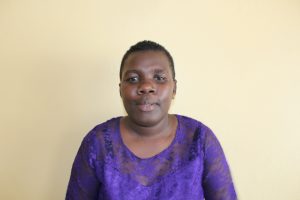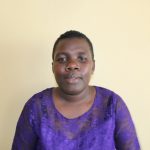Being one of the 791 students at St. Joseph Lunyu Primary School in the dry season means bringing a heavy jerrycan full of water to school in the morning, then going back home for another jerrycan in the afternoon. Each time, this may mean missing part of lessons.
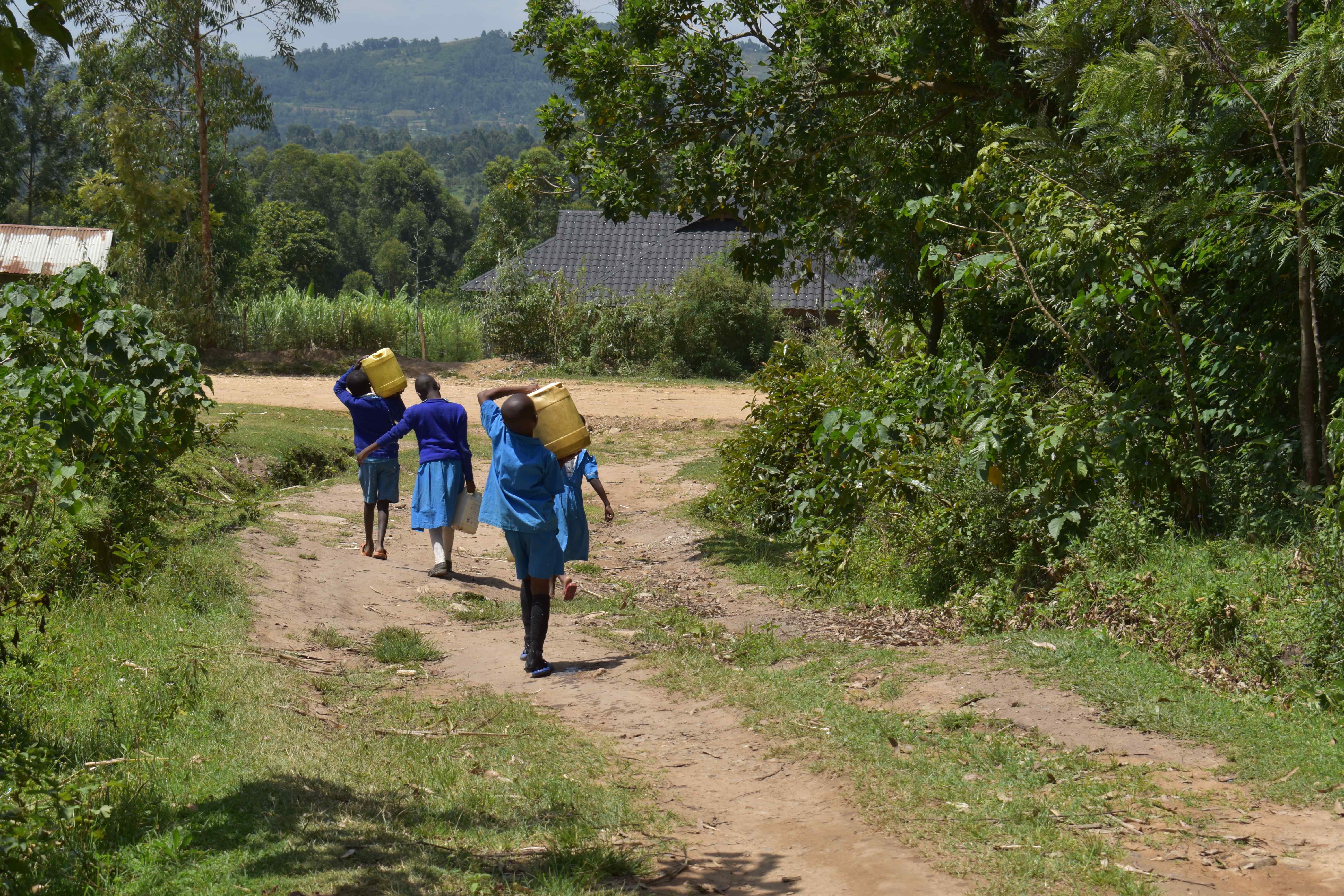
The long walk and the time wasted are bad enough, but the water source the students are generally using to bring water to school with them has visibly poor water quality, with a usual proliferation of mosquitos (and subsequent pesticides) to season each jerrycan-full.
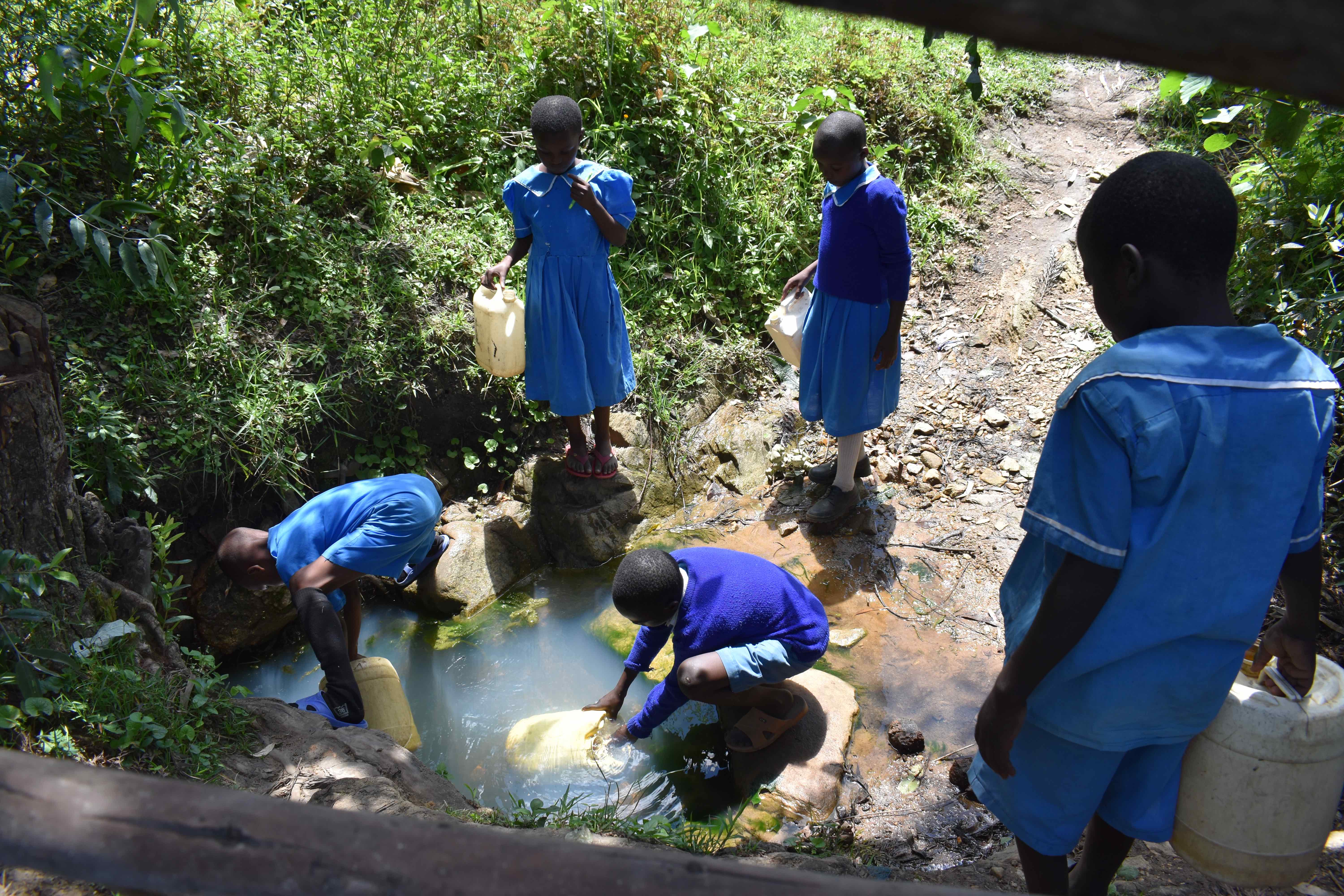
Surely, it must be better for the students during the wet season when the school's open, hand-dug well fills up with rainwater. Well, this just means students face different problems.
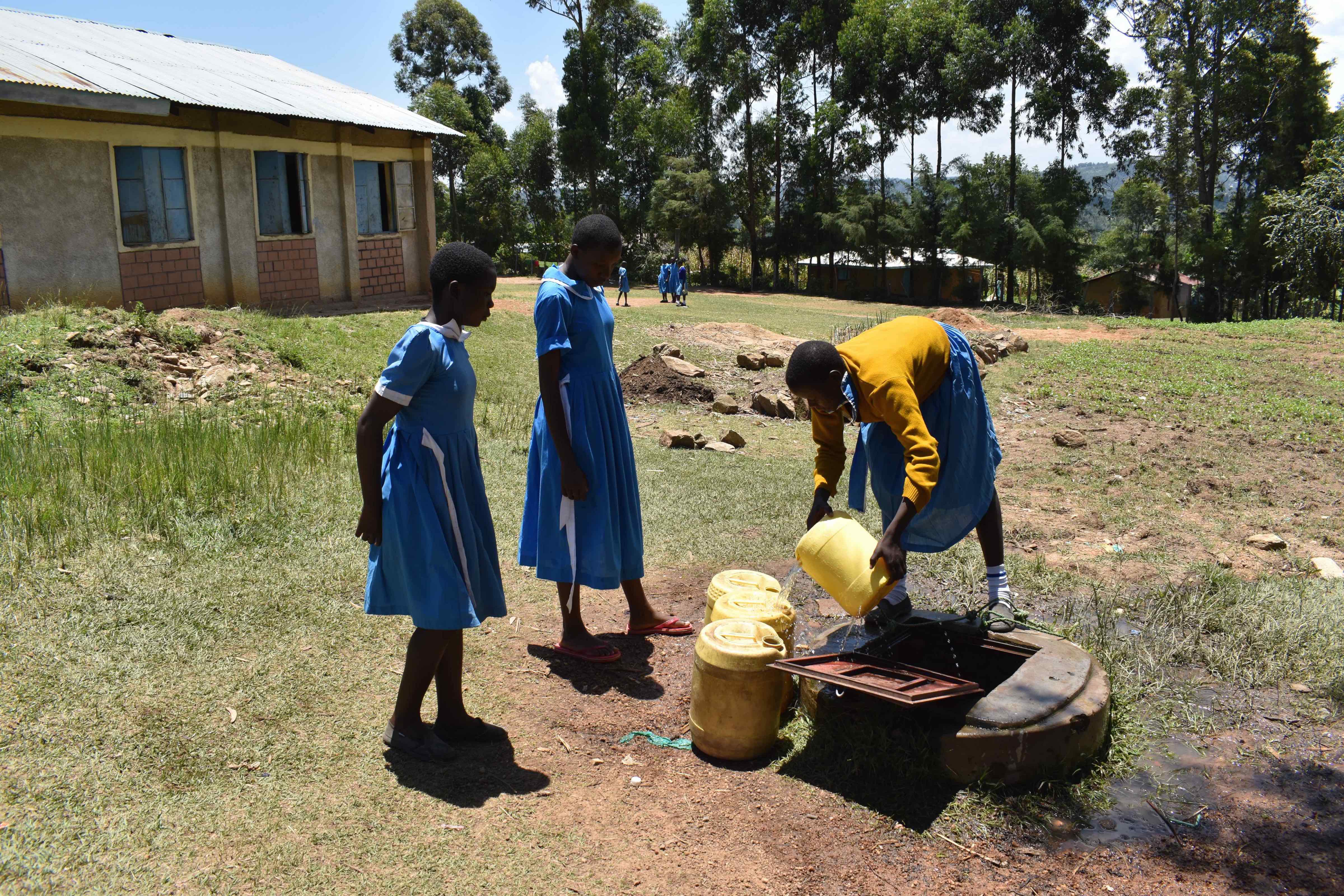
The well on the school's grounds doesn't have a pump, so the children have to lower their potentially dirty containers into the well. And while the water quality is questionable, it's far from this well's only problem. Some time back, a younger student almost died after falling in. Smaller students need to ask older ones for help every time they need to draw water.
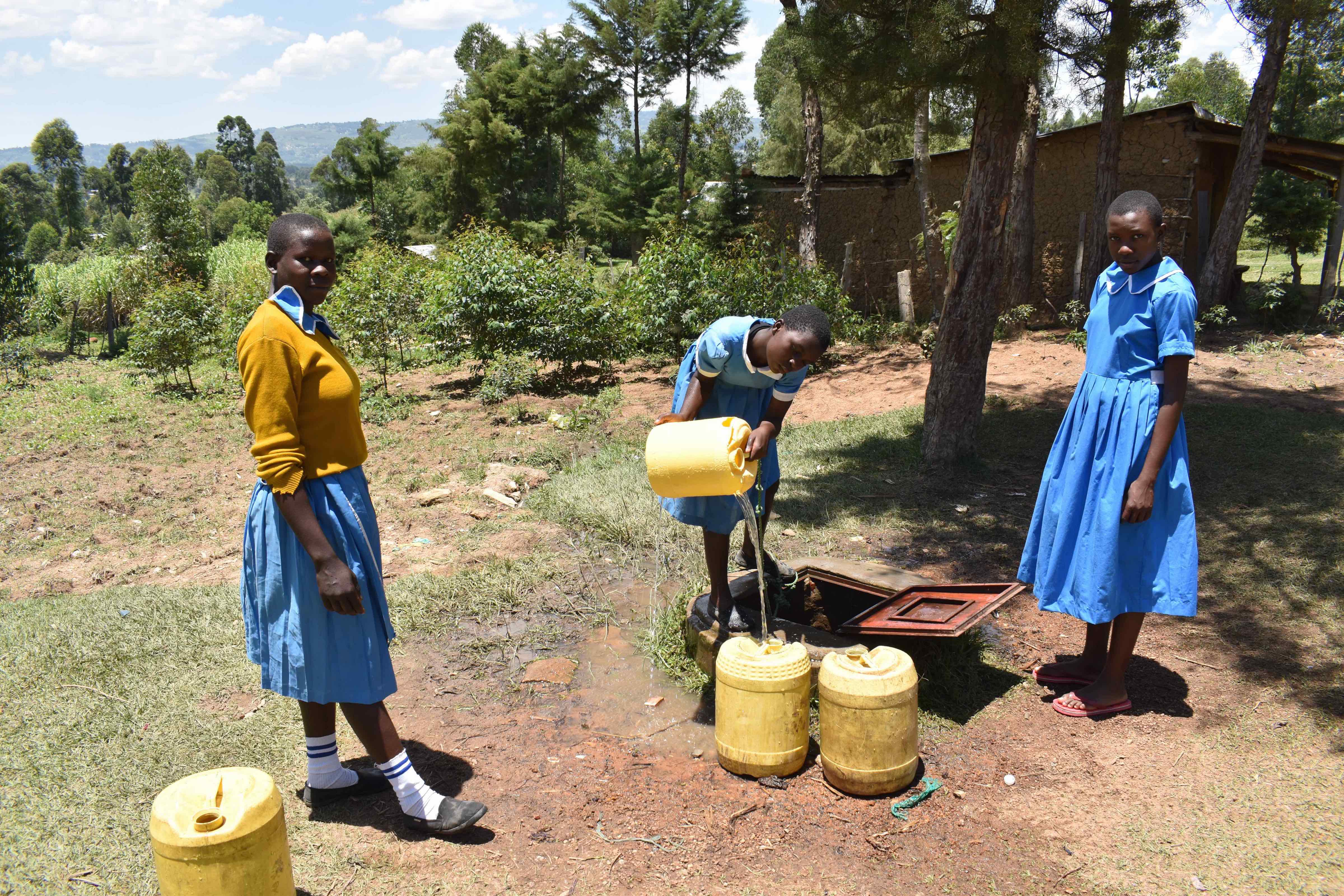
12-year-old student, Emmanuel (pictured below), explained: "The situation is so bad because I cannot draw water by myself. This has really affected my health for some time now, forcing me to miss school at some point. When we [are] staying at school and do not have enough drinking water, [it] dehydrates our body."
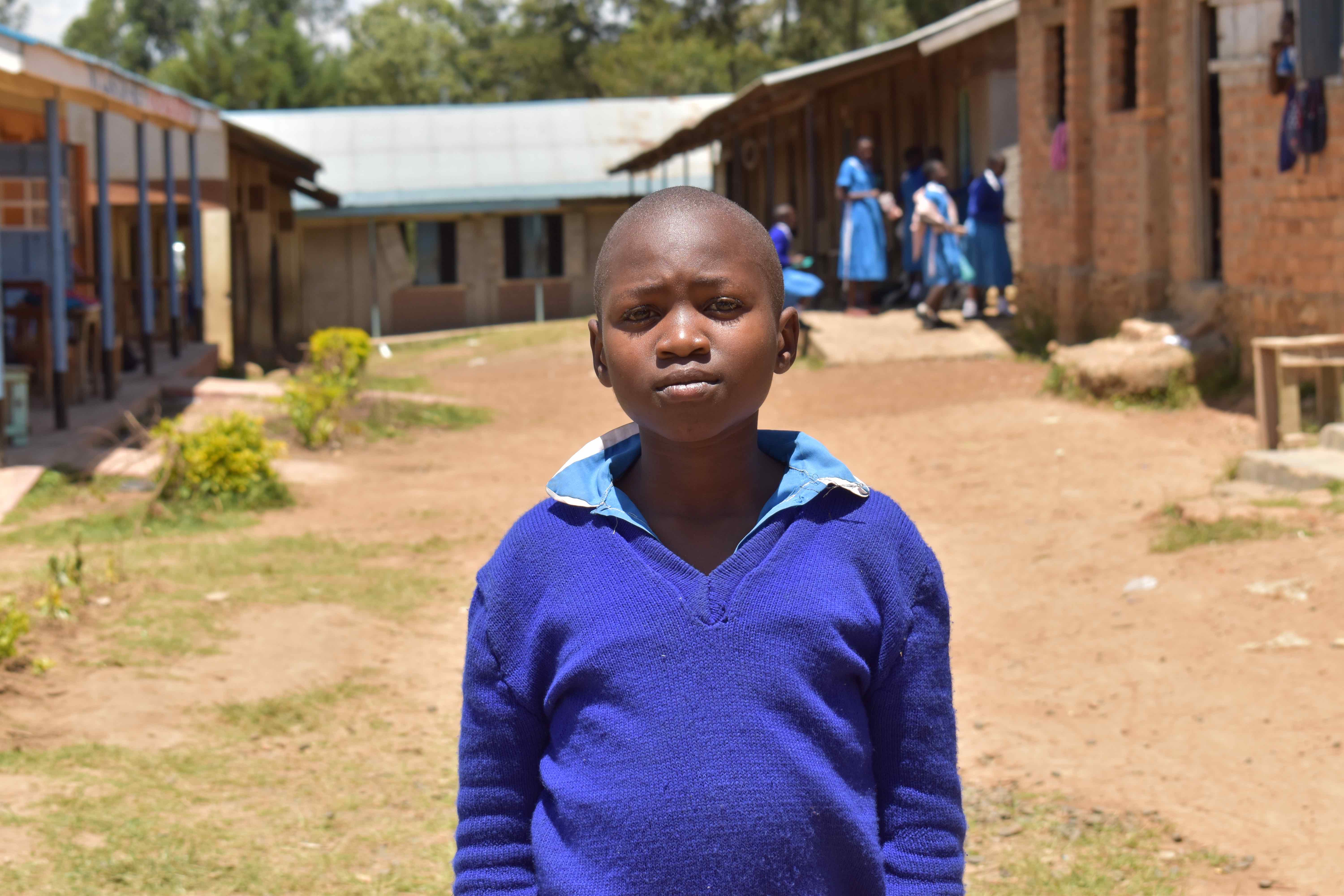
Although students are the ones suffering the most for lack of water at St. Joseph Lunyu, they aren't the only ones. The school students and staff have constant stomachaches, with some reporting cases of typhoid fever.
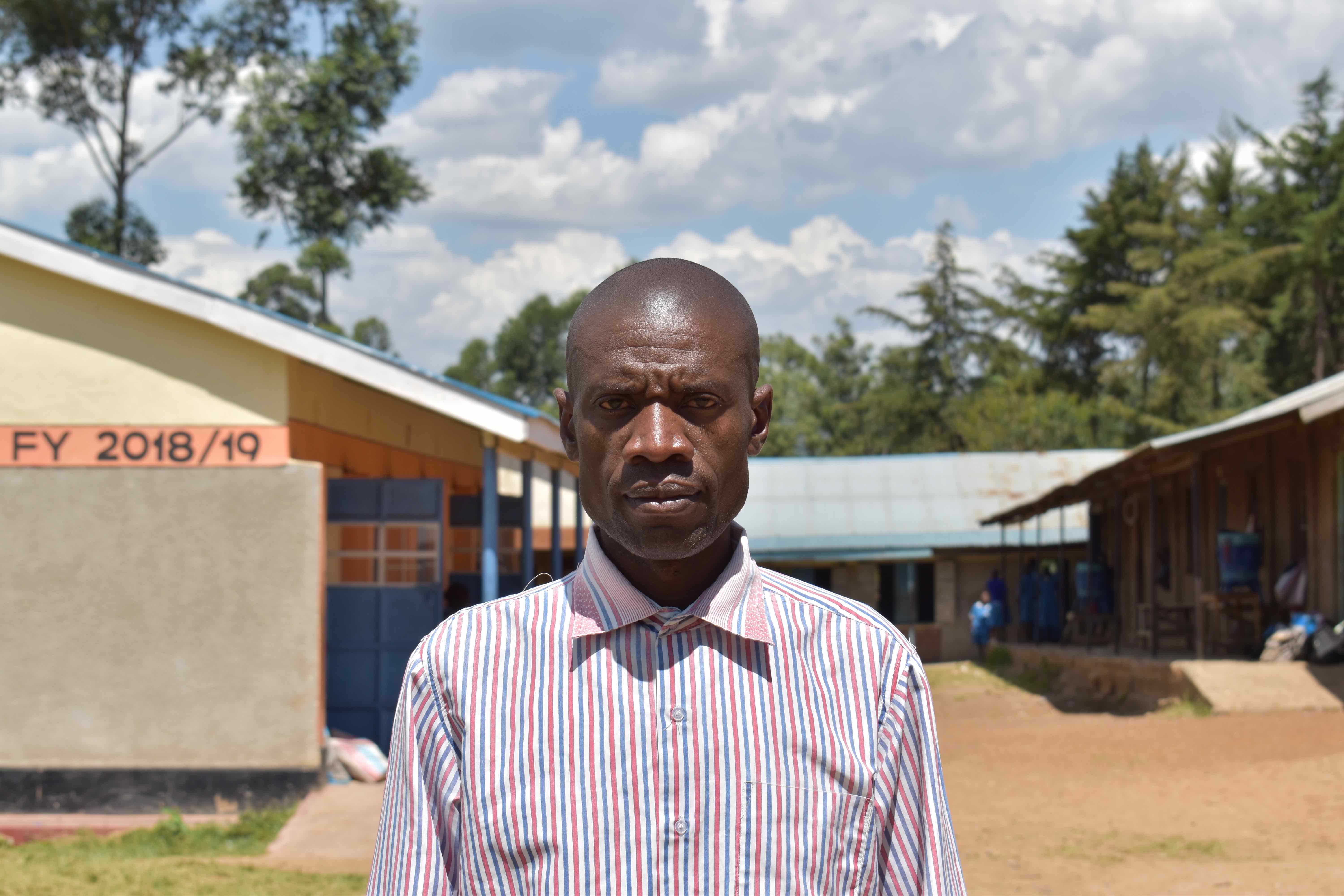
"We have one madam who was admitted [to the hospital] just because of using this water," said Head Teacher, Peter Kausi, pictured above. "She was new to [the] school, so she was badly affected."
What We Can Do:
New Well
We conducted a hydrogeological survey at this school and the results indicated the water table beneath it is an ideal candidate for a borehole well. Due to a borehole well's unique ability to tap into a safe, year-round water column, it will be poised to serve all of the water needs for this school's large population, even through the dry months.
The school will help collect the needed construction materials such as sand, rocks, and water for mixing cement. They will also provide housing and meals for the work team, in addition to providing local laborers. We will complement their materials by providing an expert team of artisans and drilling professionals, tools, hardware, and the hand-pump. Once finished, water from the well will then be used by the school’s students and staff for drinking, handwashing, cooking, cleaning, and much more.
Handwashing Stations
There is currently nowhere for students to wash their hands after using the latrines or before eating lunch, let alone the water to do so.
The student health club will oversee the two new handwashing stations we will provide, and make sure they are kept clean and in working condition. The club leaders will fill the handwashing stations with water daily and make sure they are always supplied with a cleaning agent such as soap or ash.
VIP Latrines
We will construct two triple-door latrine blocks using local materials that the school will help gather. Three doors will serve the girls and three doors will serve the boys. All of these new latrines will have cement floors that are designed to be easy to use and to clean. And with a borehole right on school property, there should be enough water to keep them clean.
Training on Health, Hygiene, COVID-19, and More
We will hold a one-day intensive training session with students, teachers, and parents. This training will cover a wide range of topics including COVID-19 symptoms, transmission routes, and prevention; personal and environmental hygiene; and the operation and maintenance of the borehole, latrines, and handwashing stations. There will be a special emphasis on handwashing.
Our team of facilitators will use a variety of methods to train, including participatory hygiene and sanitation transformation, and asset-based community development. We will initiate a student health club, which will prepare students to lead other pupils into healthy habits at school and at home. We will also lead lectures, group discussions, and provide illustrative handouts to teach health topics and ways to promote good hygiene practices within the school including handwashing and water treatment. We will then conduct a series of follow-up trainings before transitioning to our regularly scheduled support visits throughout the year.
We and the school strongly believe that all of these components will work together to improve standards at this school, which will help lead to better student academic performance and will help unlock the opportunity for these students to live better, healthier lives.

 Borehole Well and Hand Pump
Borehole Well and Hand Pump
 Rehabilitation Project
Rehabilitation Project












